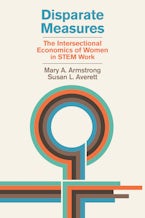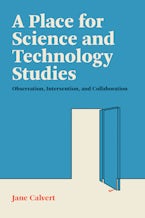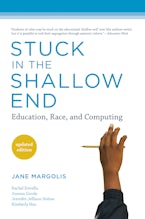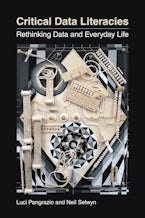Forty years after Brown v. Board of Education, Jane Margolis exposes a barely recognized fact: minority children are still stuck in separate and unequal educational settings. Margolis points out why having high-tech equipment without a system in place to foster critical thinking does little to close the achievement gap in poor communities.
Geoffrey Canada, President/CEO, Harlem Children's Zone, and author of Fist Stick Knife Gun: A Personal History of Violence in America
This a highly compelling book that should be read by everyone interested in the future of science and engineering education in the US.
Maria Klawe, President, Harvey Mudd College
Stuck in the Shallow End is at once heartbreaking and inspiring. Its close up look at three high schools shines penetrating light on how well-meaning educators construct social inequality through unquestioned assumptions and everyday practice. At the same time, it also reveals their eagerness to become righteous change agents, if given hope, opportunity, and support. From swimming pools to computer science labs, Margolis and her colleagues have much to teach educators and policymakers about urban schools.
Jeannie Oakes, Presidential Professor in Education Equity, UCLA
Students of color may be stuck on the educational 'shallow end' now, [Margolis] writes, but it is possible to end their segregation through systemic reform.
Education Week
Stuck in the Shallow End is an insightful, nuanced view into a complex set of problems. In the end, this book gives us hope that there are solutions. Jane Margolis and her colleagues show us the insights that social science can offer us in trying to understand (and meet!) the challenge of broadening participation in computing.
Mark Guzdial, School of Interactive Computing, Georgia Institute of Technology
In Stuck in the Shallow End, Jane Margolis and her team explore racial disparities in computer science by studying structural details as well as the belief systems and psychological aspects that influence 'true access.' This book shows that having physical access to computers is not the same as having intellectual access to computer science. Stuck in the Shallow End should be required reading for all educators who care about our children and their futures.
Indira Nair, Vice Provost of Education, and Professor, Engineering and Public Policy, Carnegie Mellon University

Winner, Education category, 2008 PROSE Awards presented by the Professional/Scholarly Publishing Division of the Association of American Publishers.











